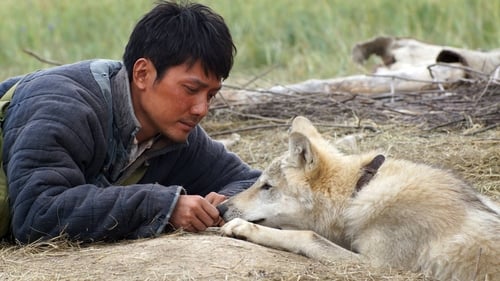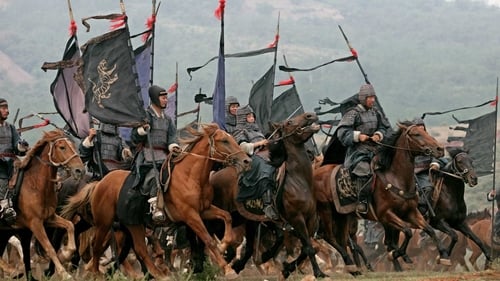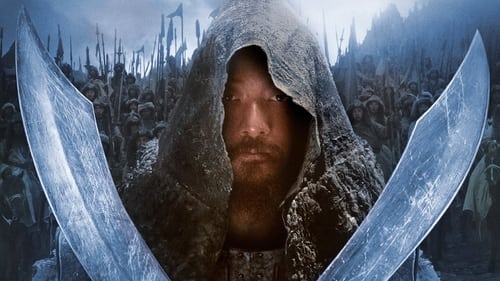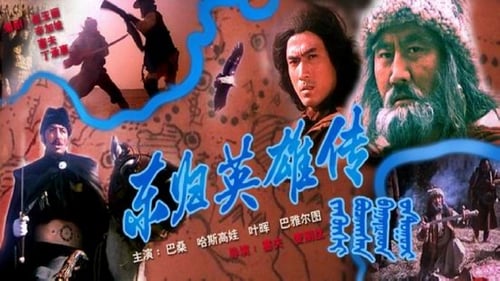Mijid Baasanjav
Nascimento : 1954-01-01, Inner Mongolia, China

Dei-Sechen
Temüjin and Börte are childhood lovers who are deeply in love; but news of Temüjin's father's death swiftly disrupted their relationship. Temüjin heads back to his hometown, but was faced with a sudden attack from his father's former comrades, causing his whole tribe to be destroyed.

Bilig
No ano de 1967 na China, o jovem estudante Chen Zhen (Shaofeng Feng) é enviado para viver entre os nômades do interior da Mongólia. Entre o avanço da civilização e os tradicionais inimigos dos nômades, os lobos, Chen se questiona sobre a similaridade entre humanos e animais, comcluindo que todos são residentes e invasores lutando para encontrar seu lugar no mundo.

A little known fact is that Chinggis Khaan, better known as Genghis Khan, would collect orphans from his bloody battlefields and have his own mother raise them. These adopted brothers grew up to become his most loyal officials and advisers. Khaan organised his Mongol soldiers into groups according to the decimal system. Soldiers were arranged in units of 10 ("aravt"), 100 ("zuut"), 1,000 ("minghan") and 10,000 ("tumen"). Each unit had an appointed leader reporting to a larger unit. A 10-person "aravt" unit is ordered by Khaan to locate a skilled doctor who lives in a forest. En route, they discover an abandoned baby. He is in fact the child of an enemy warrior who gives pursuit, even though they have saved the child's life. Whilst protecting the child from attacks from enemy soldiers, the members of the "aravt" must also complete their mission. Through their actions, they demonstrate the benevolence and bravery of Mongol warriors as the final battle closes in.

General Guan Yu
No ano de 208, Cao Cao, o primeiro-ministro do imperador Han, o convence a declarar guerra aos senhores feudais do Sul da China, Liu Bei e o duque de Wu, Sun Quan, afirmando falsamente que estes são traidores. Amedrontado, o monarca cede aos desejos de Cao Cao e o nomeia comandante de todos os exércitos. Após uma grande vitória contra os exércitos terrestres de Cao Cao, as forças combinadas de Liu Bei e Sun Quan concentram-se na fortaleza de Zhou Yu (Princípio Vermelho) e aguardam o confronto decisivo com um imenso batalhão compostas por 800 mil homens e três mil embarcações de guerra. Será uma batalha feroz onde a criatividade fará a diferença. Um festival deimagens únicas. A arte da guerra vista de forma deslumbrante.

Guan Yu
A história se baseia em eventos dos anos 220 a 280 D.C. e conta uma passagem do Romance dos Três Reinos, livro escrito por volta do ano 1350 por Luo Guanzhong. Nele, os três feudos existentes no território chinês entram em conflito. A batalha climática, que envolveu cerca de um milhão de combatentes, teve de um lado dois senhores, Sun Quan and Liu Bei, derrotando o superior exército invasor de Cao Cao. Pouco tempo depois, a dinastia Han terminou oficialmente e o país foi dividido entre os três reinos. A Batalha dos Três Reinos é a primeira parte de uma saga de mais de quatro horas. O longa ainda possui uma segunda parte.

Esugei
Reconstituição dos primeiros anos de vida de Genghis Khan, que ainda muito cedo foi escravo antes de se tornar um dos maiores conquistadores de todos os tempos. Ele chegou a dominar metade do mundo conhecido até então, incluindo a Rússia no ano de 1206.

During the 12th Century a boy is born to a tribal chief. He is named Temujin, which means "blacksmith." Nine years later, his father is murdered by the Tartars After a long struggle, just when Temujin reclaims tribal chief status, the Merkit tribe kidnaps his wife. In order to fight against the Merkits, Temujin has to use his mother as a pawn in exchange for troops from ally tribes. Temujin manages to rescue his wife only to realise that she is pregnant with the enemy's child. Enduring tremendous anguish, Temujin throws himself into battle against the Tartars and slaughters the leader of the intruders. He eventually takes his wife back and accepts her child. Later on, he begins a campaign to unify all Mongolian tribes. By the age of 40, he is bestowed the title "Genghis Khan", which means "oceanic ruler".

Tian Huchang
In 1771 the oppression of Tsarist administration forced the larger part of Kalmyk's approximately 170,000-200,000 people to migrate to Dzungaria. Ubashi Khan, the great-grandson of Ayuka Khan and the last Kalmyk Khan, decided to return his people to their ancestral homeland Dzungaria, and restore the Dzungaria Khanate and Mongolian independence. Their goal is not an easy one and a lot of fighting and drama unfolds.







